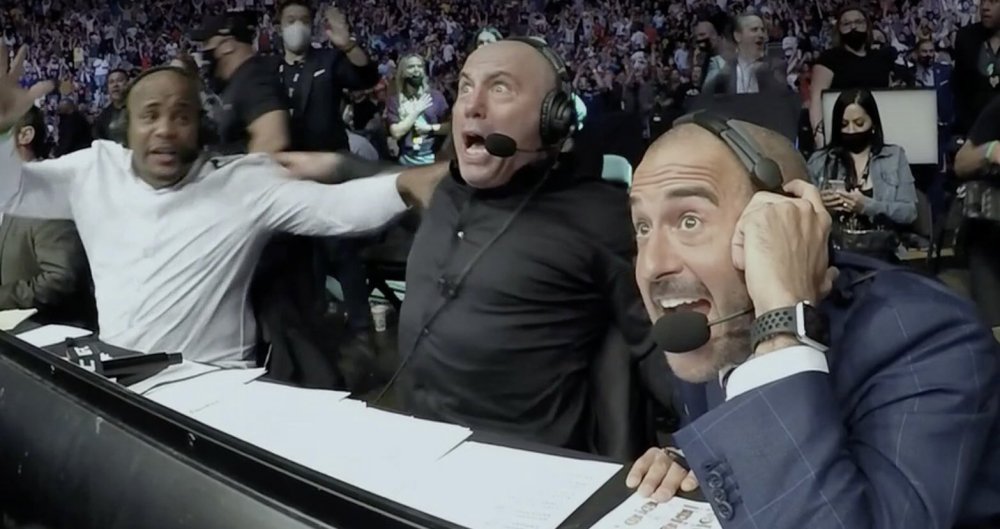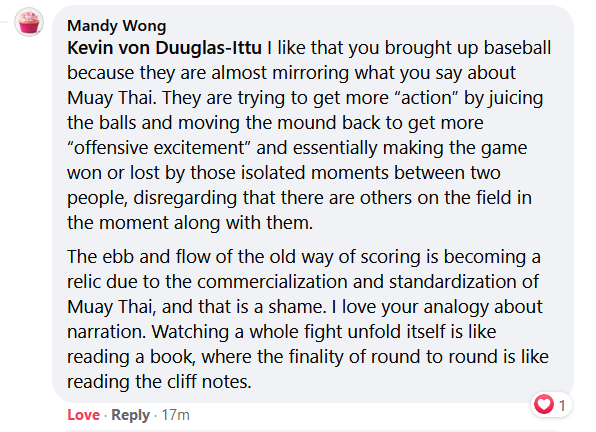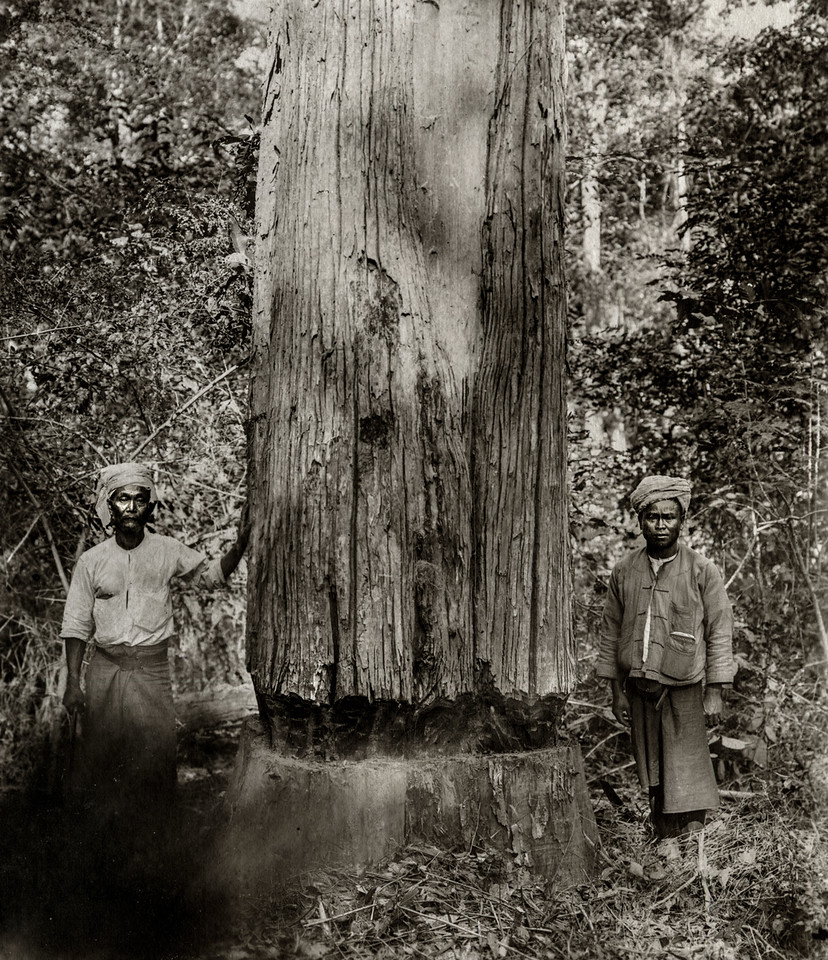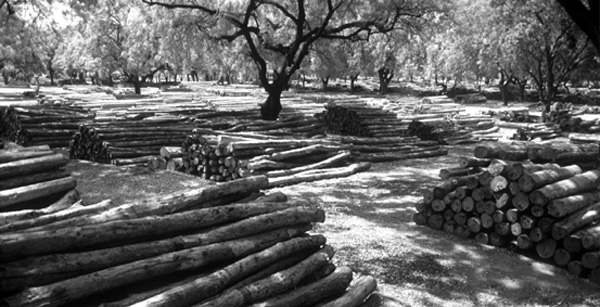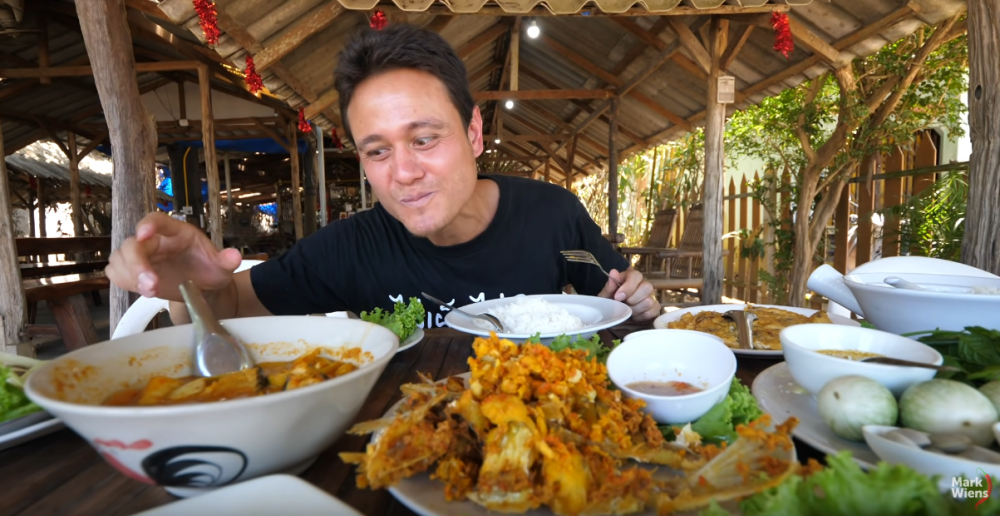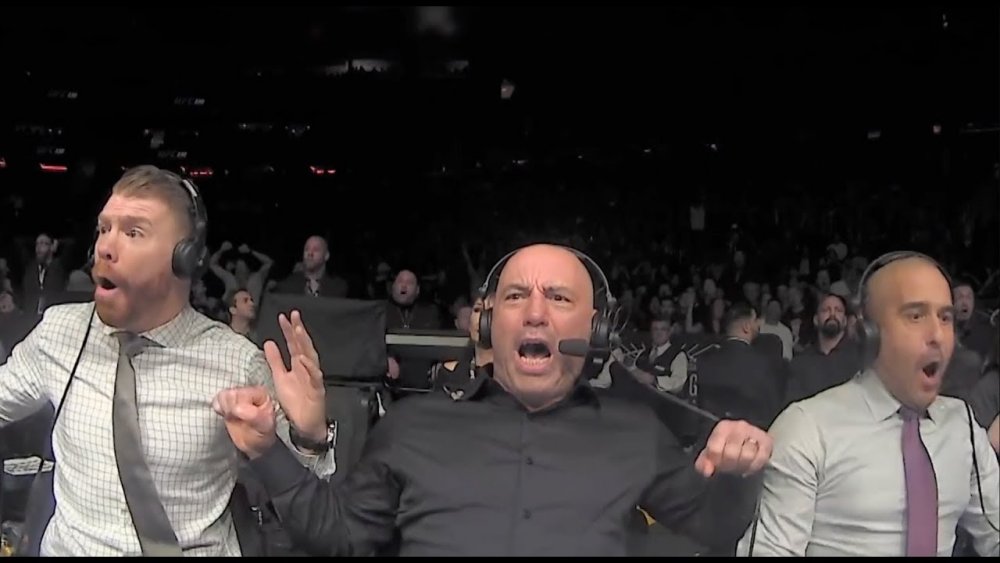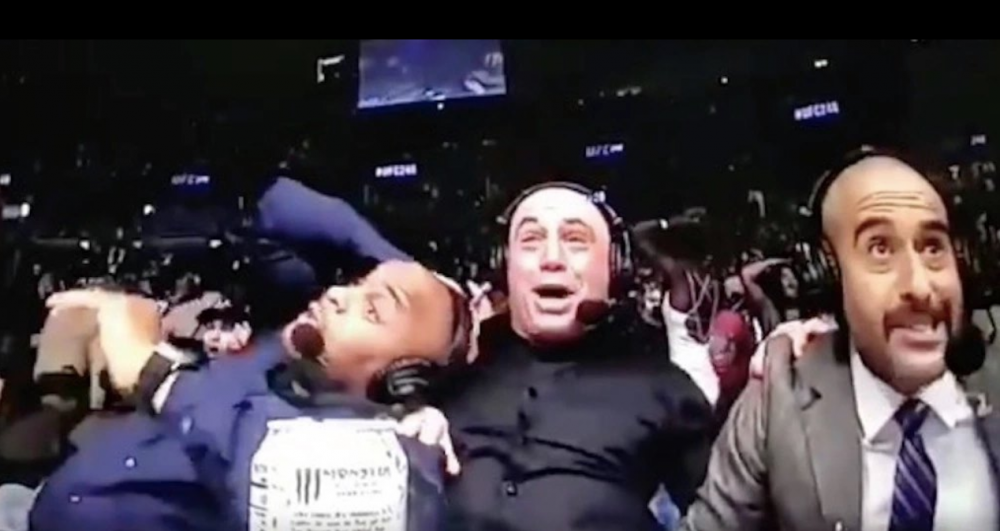Leaderboard
Popular Content
Showing content with the highest reputation on 04/26/2021 in all areas
-
Kevin and I were talking about this over breakfast this morning and I noted that the narrative form of scoring in Western sport certainly used to be more present. There's no way a 25 round boxing match was a round-by-round mathematical tabulation of points. Bullshit. But as the narrative disappeared, fights became shorter, sportsman became spokesman, the narrative was extracted. So you get things like WWE, contemporary boxing beefs, MMA, all the shit-talking that's outside of the ring, outside the fight, prior to the event in order to give it structure and context within the fight itself. There's no narrative within the ropes, so it's constructed outside of it instead. Aside from scoring, apart from scoring, but rather how the audience will be divided to cheer one way or the other - not based on what they're looking at, but WHO they're looking at. Thailand's Muay Thai has Legends, heroes, icons, playboys... all of it. But it's not part of the narrative of the fights, almost ever. There are grudge matches, rematches, etc. But it's not at all the same as these examples in Western sport; the narrative is within the fight itself. They're fucking amazing story-tellers, back in the day. Less so now.3 points
-
There is a minor story in Philosophy, emphasized by Henri Bergson, that in the West there has been a vast misunderstanding of Time. We, from a very early time, have Spatialized Time, putting it under the auspices of the Kingdom of Space. We take Time - which is a completely other thing - as a series of discrete moments, one after another. This moment, then that moment, then another. Each one, mysteriously and indefinably begins and ends, like points we can draw on a page with a pencil. Bergson insisted that there was another thing. Duration. Duration is a very different thing. In duration the past is bundled up in the present. It literally lives on, in the present, bundled. And, poets & cinematographers might argue, this is everything that our world is made of. It is an entire cascade and weaving of duration...and durations within durations. This is the foundation of the art of Narration. Narration takes as its cornerstone the idea that the past cannot die, it cannot be made to stop, because everything is bundled. Notes played at the beginning of a song do no cease when their physical vibrations have ended (itself a very difficult thing to identify), but persist, bundled, throughout the score...and then, persist in other scores even. Durations within durations. These thoughts came to me, or tied themselves together, after reading Sylvie's new writing Leaving Pain to Weakness, with some other influences...watching Shadow and Bone (which plays with time layers) and listening to a podcast including Bergson. But mostly from reading her piece. A painful thing, as much as we like it to, cannot end. Just as anything cannot end. All of it is bundled. Even if you end the song, it carries on, it carries its force of notes, up into the other songs...all songs. The only way to change the persistence of a note, a memory, a fact of the world...the ONLY way, is by the notes you play after it. Duration. This is the gift, and the burden of duration. We are all faced with difficulties. We are all faced with weaknesses. With sorrows. With great things that we wish that never were. But, these are living notes. They are part, not only of our duration, but the durations of all the others around us. The only redemption of any note played, is the next note played, and the string of notes we are beginning. And, in our lives, we live musically, playing notes that carry forth the past as a living thing, singing it into greater sweetness, capacity and continuity. So, what cares any of this of Muay Thai scoring? Muay Thai is at something of a crisis. The industrial, globalized forces of the world very much want to make of its scoring structure, and its actual dramatic effort, a spatialization, woven of discrete "points" (damage done), whereas the Art of it, what the Muay Thai of Thailand has been woven out of is a Narrative thing. Events in the first round reflect back onto the 4th round, narratively. A Muay Thai fight is a duration. Fighters in Thailiand fight fights as if they are storytellers, not demolition experts. This is a very old way. Why it matters is largely connected to why fighting matters. Fighting is one of the oldest dramas. It is a duration. The art of fighting teaches us all, celebrates for all of us, the power of the story. It is the very way in which the early sorrow, in all our lives, can and should be redeemed...by the next note played. The great fighters of the world are not those who are not touched. Who are not wounded. They are those who have been wounded, have suffered, but have redeemed themselves. Not by erasing their weakness, as if we can turn the pencil upside down and scrub it away, but embracing its duration, its persistence, and weaving it forward into sweeter notes. This is the very fabric of what we are, and in fact this is really how we read sport, and art, and song, no matter how those forms have been distorted towards Space. What is beautiful and worth preserving about Thailand's Muay Thai traditional scoring is that the aesthetic, itself, embodies this Narrative truth. It is meant to turn weakness, into strength, and to teach us how. Instead, stories all over the world are being chopped up into "events", much like dots on a piece of paper. In fighting these events are "clashes", which become exicised from their living material, and exported into highlights, pushed out into feeds, conveyor belts into emotional mouths. Everything is chopped and loaded. Fights exist to produce more and more clashes. We just want men and women to "spark". The bigger the spark, the further it goes into our dark night, echoing into feeds. This is why the knockout is so vital to combat sport. Human beings are mammalian flint, used to start fires to simply draw others into the entertainment form. The art of Narration does persist in all forms of fighting, because we are Duration Beings. This is how we navigate our lives. But fighting itself becomes less enriching, and much more a digital coal furnace, stoking an engine driving a train on tracks we don't even know or care about. Fighting arts become more stupified. 5 round fights become 3. Defensive soft genius is melded hard into wind-milling animus. Everything is bent towards the discrete event. Winners are made up of whoever greedily piled up the most events, as if chips on a table. And all of it is a vast machine of: This terrible photo, and its endless repetition, as these stooges attempt to re-enact it over and over, fight after fight, haunts me.2 points
-
This whole thread really hits me hard in ways I can't articulate well yet. Thank you for this. It resonates strongly with an anecdote of mine though: I took a video of a snail recently. I like taking short clips of stuff happening around me, usually animals. I always have in mind to send them to my friends/family. It's a love language of sorts. It's rare that I film stuff for myself. As a result, I tend to film with the mindset that I shouldn't let the video be more than a minute long. You know, the social media standard length ... Over a minute might be too long - they might get bored. So when I saw that snail at first I sat down with the idea of simply taking pictures of it. The snail didn't seem bothered by my presence at all and kept sliding forward to wherever he meant to go (sometimes snail freeze or "go home" we get too close). After a few rapid snaps I felt like filming its journey for a few seconds. The snail looked even more cute in motion! As soon as I started filming I thought why not just stay still and let the snail leave the frame entirely before cutting, no matter how, long that might take? Honestly, my thought weren't that deep while it was happening. I was simply appreciating the beauty of the snail in that particular lighting. I attributed some meaning to it afterwards: maybe I did it to remind myself how I need to slow down; how I need to focus better on the whole story, not just tiny parts here and there; how I need to commit to the very end of things: not taking shortcuts, no stopping when the pace and the distance and the matter are too uncomfortable; and not running away. Snails can't run away. They're very vulnerable. After I stopped filming, I stayed with the snail until it reached the side of the path - where there's less risk to be stomped on. Usually when I see a snail in the middle of a path/road I pick it up and put it somewhere I assume is "safer". I didn't want to interrupt the snail's flow this time. https://youtu.be/aMZdEv09Qgo1 point
-
The richness of Narrative Storytelling. Or, how events register as important in very vital ways, retroactively, in a Duration. In scoring a fight, if you are just calculating "damage" (health) points, in a promotion that is dictating clash after clash, you have a significantly reduced event space. The number of things that can register, become minimal...because they can only register in terms of their intensity, as they are experienced AT the time of their occurrence. These are discrete events, cut off from other events. But, in Narrative space, in Duration, the intensity of events, specifically past events, changes over time. Just as the Kaizer Zoze reveal in The Usual Suspects (1995): Or Ali's Rope A Dope vs Forman. When fighters become storytellers they are invited to bank, to deposit details, which will come to the fore later. These skills of storytelling, if rewarded by the criteria, increase and enrich themselves. The complexity of the art increases, because the permutation of what matters, what will matter, also increases.1 point
-
Opening another line of thought. Instead of arcing back to agrarian models of arc'd time, complexity in game play may also be revealed in narrative storytelling. Or, how traditional Muay Thai may be more like Chess than you think. Narrative arc structure could reflect essential complexification of game play, the density of possible moves and positions. Or, why 5th rounds in Thailand's Muay Thai may lack drama.1 point
-
I hope Mandy doesn't mind, but I want to bring in her comment on the Facebook share of this post, because it links up with super important thoughts about the way we are changing, as human beings, even in the last 5 years: My response was this: We are undergoing a visceral and intellectual change, and its happening quite quickly. We can't even think in terms of decades. Two or three years and our perceptual capacities have already been altered, the spectrum through which we can even take in the world has been re-temporalized, locked into shorter and shorter, more and more affect-intensive tempos. And yes, a primary means by which this is happening in through our "entertainment" choices. It's not that enjoying this or that is "bad" (though it may be), its that in enjoying this or that that has been structurally honed to produce certain changes, we are unconsciously being shaped by it. We are being dosed, in the very same way high-fructose corn syrup was/is dosing us. The inert knockout is corn syrup, the highlight reel is corn syrup. The tomahawk dunk or deep, deep homerun is corn syrup - you want to see a surreal speculative entertainment evolution of this, check this out. These are all spikings of our brain. I'm not saying: Never have a sugar rush! But, when analogical sugar becomes the basis of the very structure of the things we consume, and we start cheering for the change in traditional, very high-level fighting styles, just so we can get our Jones for sugar, we are at an important juncture. While we can focus on things like the role of SQUEE videos, or meme-ification of the political, for instance, I think it worthwhile to consider the fates of very old things, like the narrative structures of Muay Thai scoring in Thailand. Because once the Old Ways of perceiving/experiencing are gone, they likely are not reclaimable.1 point
-
There are two/three important terms in the Philosophy of Deleuze & Guattari. Territorialization, and Deterriorialization (and re-terriotorialization). There is a lot in this Philosophy which is purposively obscurantist, in the way that one might write poetically, to draw in the maximum number of associations and ideas, to develop a kind of intensity in your expression, but at the same time letting that density of idea act as a filter, letting in only readers that only want to dig for, and help create the meaning. There is much debate as to whether this kind of writing is a good thing, or a bad thing. Is clarity of the highest value when expressing ideas? Does clarity trump all other expression? Maybe. But in the pleasures and powers of reading and writing there are other powers. For a moment though I want to simplify these terms. Make them plain. Because they help with what I'm talking about in terms of Narrative powers and meaning-building. Picture this. When something is IN the earth it is grown in, it is territorialized. It is in its territory. In its context. It is within the realm in which it is made. It is earthed. A strong, hardwood bodied teak tree, in the ground in which it developed is earthed. If you want to know what that tree is, you understand it in its territory. It's immense size is composed of a duration, which is to say that its past is presently living in it. It is a temporal whole. And this whole extends well beyond its physical borders or properties, no matter how we would like to isolate them. If the tree is harvested, cut down, it has been de-terriotorialized, in Deleuze & Guattari's terms, it has been unearthed. It has been torn from its contexts, the living whole which produce it...and the living whole which hold what it is...its story. If it is cut and stacked (these are much smaller teak logs), the de-territorialized (un-earthed) teak has been re-terriotorialized. It has been re-earthed. What does this mean? Well, if you were a home builder and you lived around lumber yards, "where teak comes from" wouldn't be a forest at all. It would be a place where it is stacked. This is where the teak (material) would gain new context, and new meaning. We get this all the time with food. "Remember to pick up some chicken!" doesn't mean: "Go catch a chicken!". It means: Go to the chicken-gettin' place, where all chicken is found. The territory of Chicken is wrapped in plastic, cut into body parts, on refrigerated shelf. When things like teak or chicken are re-terriotorialized, re-earthed, their original stories are pretty fundamentally lost, or cut off. Our narrative understandings of them begin with where they come from. They come from the lumber yard, or the poultry shelf. The branch of Philosophy wants to call our attention to these kinds of powerful recontextualizations of things. They argue that a fundamental force of Capitalism, is its power to de- and re- terriorialize things, people, ideas, feelings, to tear them out of their "earths", and to put them into new earths. This can be creative and productive, but it can also be destructive and debilitating. The first step though is to just even be aware that un-earthings are even happening, and that they are happening everywhere. If we lose track of these things we just get presented with a "reality" of the world which we can become trapped in. We literally think that chicken comes from the store. What does this have to do with Muay Thai scoring? Let's put it this way. When you start bending and twisting the sport of Muay Thai, pushing along the lines of spatialized Time just so you can produce KOs, so that these KOs can be harvested, that is deterriotorialized, that is unearthed, and put into the lumber yards of social media feeds, and highlight videos, you have started to farm combat sports. No longer is it This great tree which grew in this rich patch of forest, it is now This spectacular knockout which came out of this fight promotion, or this Instagram account. Why does this matter? Well, in the posts above I discuss how the very powers of rich meaning-building are embedded in the narrative form of Thailand's Muay Thai, and the the vital force of the sport is connected to this. We want as meaning-beings to enforce the powers of narration. And in fighting, narrative performance seems to allow us to process our own tramatic lives and sorrows. This is important stuff. But, on another hand, if you just start farming teak from where it comes, there will be no old-growth teak left to harvest. It takes a long time to grow these trees, and an ecosystem of living things as well. The quality of the wood, yes, you can chop it up and make lots of commercial gain (and even good) from distributing it. But once it is chopped up, it is gone. Now, you suddenly have farmed teak. Teak, which is no longer what teak was. And, as the demand rises, you may not even have even that. You may have "just as good as teak!" woods. The memory of teak begins to fade. The duration of teak begins to end. When we live in a world of knockouts and clashes. Where things get "blowed up!" over and over, we are living very different affective lives. Our storytelling powers, as human beings, becomes diminished (we are just hunting the next stimulation), which means our own ability to weave new futures out of our tramas and sorrows becomes weakened and atrophied. In fact, it comes to be that it is OUR affects that become farmed. This, afterall, is what social media is, the farming of (and maximalization of) our ability to feel and respond. Our affects are passed into feeds for others to consume. Just as fighters come to be pushed into non-narrative clash-fests, looking for sparks, so that their affects can be passed into "highlights", we too become living donors to an entertainment of largely meaningless peaks and jolts of what's human.1 point
-
The Pornification of Enjoyment It is worth talking a little bit more about the Joe Rogan crew "reaction shot", which has become something of a visual trope of the UFC broadcast. To many these are very real and natural reactions, very real excitments which are fundamentally honest - I'm less concerned about the honesty of them, but to many the honesty is closely tied to their enjoyment. I really didn't start to write this thinking about this reaction shot. Instead I wanted to focus on the importance of Narrative in our lives, a change in our perspective on the very nature of what is Meaningful. This is BIG idea stuff. Big Culture. This is the stuff of what we weave our lives. And, my point, was that as we alter the values of our fight entertainment, and the very structure of its asethetics, we might be losing very important dimensions of what it means to be human, or what sport can really give to us, to nourish our lives. The Rogan Crew photo was meant as a stand-in for how media of Sport largely now is about creating little packets of charged excitement, that can then be duplicated ad infinitum, pushed through our Feeds. The pushing of affect, across space and time, is the very force of social media, and why it is a dominant influence on how we see the world. But, the side path of the integrity of the "enjoyment" moment is an interesting thing to think about. There is a REALLY good food reviewer on YouTube. Mark Wiens. He is a full time eater, full of knowledge, discernment and passion for the food of the world. No doubt. But, after binge watching a bunch of his videos we noticed that he would go into a full-on face orgasm when he first took a bite of food. He became internet-famous for this moment in a tasting. He would shovel a WAY too large bite of food, like he was gorging himself on it, and then roll his eyes around like it was this absolutely intense experience. And...he would do this video after video, video after video. To be fair, these are long form videos, but they almost always had these facial moments. I haven't watched him for a long time, well, because once I noticed how predictable this response was, it just kind of took the air out of the bag. It's like when a porn actress suddenly is seen as "acting" her pleasure. It semi-ruins it all...but not entirely. It's still a great show, I won't say that I wouldn't enjoy it if I watched another episode tonight, and I'm not even going to say that Mark Wiens is "acting" like he enjoys food. He likely really enjoys food, even these particular foods, but at some point this very intense response became a "thing", and his "thing" became his hook. I screen-shotted a randomly picked video (below) but you can see it in action here: Now, this "overacting" is what makes him so good at what he does. It invites enjoyment. It leads us into enjoyment. But, it is also part of much larger trends in media consumption. It's about producing the jolt of stimulus. The affect charge that can live and distribute in Feeds. This is where we get to the Rogan Crew reaction trope. It very well might have been an "honest" or "real" reaction...though, there must have been some thought at some point, in placing the reaction camera there in the first place. And even when repeated, and intensified, like Mark Wiens' orgasmic food taste, it still can be very real...but It's about how media has become structured...and I say structured around these bite-sized moments. A very different concept/experience than narrative building, which is to say the creation of meaning itself. Pleasures, down to our very DNA themes, had meaning in the narrative events that surrounded them. You climbed a tree (a narrative), you got stung by bees, you tasted honey. You got chased by something big, you turned on it and fought for your life, you were safe (a narrative). More and more the "sweet" apexes of experience are being cut out of narratives, or narrative building. This is really the pain of drug addiction, of course. You have receptors in the brain built to be stimulated in rich narrative structures of lived life, but, instead, you put a pipe to your lips and blast those reward structures with a jolt. The structures of affects are being ripped from the fabrics of meaning-building. The hidden truth is that these affect blasts aren't being torn from narrative altogether, they are being we rewoven into narratives, but narratives over which we have much less control. The blast from the pipe comes in the narrative of procuring the crack. Suddenly, you can't help go get the crack, and start that story again. The narrative is being written for you. You have lost the ability to tell stories. It's not too far to say that the very same thing is happening with those little dopamine hits on your Facebook feed. You're getting hits, hit after hit, in a story you can't break free from. This is 30,000 ft view stuff. The point about narrative arts is that they return us to the powers of storytelling, and the traditional narrative structure of Thailand's Muay Thai, I suspect, is closely related to some of the oldest forms of human drama and narration. Twisting it into KO-hunting highlight kickboxing, so it can serve affect-peaking feeds, lives that are organized around a kind of pornification of the human [and I should explicitly say, I am NOT against pornography, and I'm not using "porn" as a moral marker...I'm using it a tracer on process], seeking spikes in experience, is a loss. And this is where we come back to the Rogan Crew "reaction shot". I'm not saying its "fake", or at least I'm not saying that its reality isn't the thing of the most importance. It's that the very form of fighting entertainment is structured around these kinds of event-experiences, peak affects separated out from the very form of meaning building.1 point
Footer title
This content can be configured within your theme settings in your ACP. You can add any HTML including images, paragraphs and lists.
Footer title
This content can be configured within your theme settings in your ACP. You can add any HTML including images, paragraphs and lists.
Footer title
This content can be configured within your theme settings in your ACP. You can add any HTML including images, paragraphs and lists.


